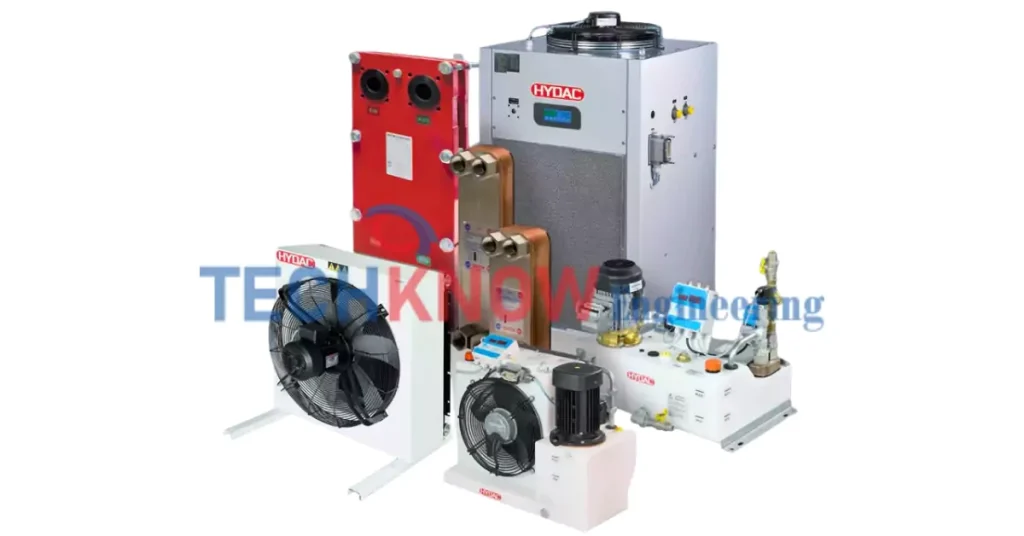Understanding Oil Cooling Systems and Their Methods
Oil cooling systems are critical components in maintaining the efficiency and longevity of industrial machinery, hydraulic systems, and other heat-sensitive processes. Without proper cooling mechanisms, equipment can overheat, leading to poor performance, accelerated wear, and even complete system failures. We will explore what oil cooling systems are, why they’re crucial, and the different methods employed to keep operational temperatures under control. Additionally, we’ll highlight the expertise of Techknow Engineering Enterprise, a leader in providing high-performance oil cooling systems tailored to diverse industrial needs.
Why Oil Cooling Systems Are Important
Heat management is vital for machines and systems that utilize lubricating or hydraulic oil. During operation, oil absorbs a significant amount of heat, which, if left unchecked, can cause issues such as:
- Thermal breakdown of the oil, reducing its effectiveness as a lubricant.
- System failures, leading to costly downtime and repairs.
- Decreased component life due to wear and stress from elevated temperatures.
Oil cooling systems regulate temperatures, ensuring smooth operation and protecting equipment investment. This makes them a non-negotiable component in industries ranging from manufacturing to power generation.
Methods of Oil Cooling Systems
Oil cooling systems come in various forms, each designed to suit specific applications and operating conditions. Here are the most common methods:
Oil-to-Air Heat Exchangers
Oil-to-air heat exchangers dissipate heat by transferring it directly from the oil to ambient air. These systems use fans to circulate air over finned coils through which heated oil flows.
- Advantages:
-
- Energy-efficient as they rely on ambient air.
- Compact and easy to install, ideal for spaces with limited water accessibility.
- Minimal maintenance requirements.
- Applications:
-
- Hydraulic systems in construction equipment.
- Industrial machinery operating in environments where water cooling isn’t feasible.
At Techknow Engineering Enterprise, we provide Air Oil Coolers equipped with advanced fan technology and robust construction to ensure enhanced durability and cooling efficiency.
Oil-to-Water Heat Exchangers
Oil-to-water heat exchangers use water or coolant to absorb heat from the oil. The cooled water is then routed to a chiller or a reservoir where it can dissipate the absorbed heat.
- Advantages:
-
- Higher cooling capacity compared to air-based systems.
- Effective in high-temperature environments or where water resources are readily available.
- Space-saving as they require smaller installation footprints.
- Applications:
-
- Power generation plants.
- Heavy-duty industrial processes requiring intense cooling.
Techknow’s Plate Heat Exchangers are a standout in this category, providing high performance in compact designs, perfect for demanding industrial setups.
Direct Oil Injection
Direct oil injection involves spraying oil directly onto heat-generating components such as gears and bearings. The oil picks up the heat and is then recirculated through a filtration and cooling unit.
- Advantages:
-
- Precise cooling targeted at specific heat points.
- Reduces heat exactly where it is most needed.
- Simplifies system design by eliminating intermediary cooling channels.
- Applications:
-
- High-speed machinery such as turbines and compressors.
- Gearboxes in industrial applications.
Techknow’s Pump-Transfer Cooler Filtration Units deliver direct and efficient cooling paired with filtration for clean, reliable operation.
Applications of Oil Cooling Systems
Oil cooling systems are indispensable across many industries, including:
- Hydraulic Systems: Regulate temperature and maintain oil viscosity in equipment like forklifts, excavators, and presses.
- Industrial Machinery: Optimize operational temperatures in CNC machines, power trains, and robotic assembly lines.
- Heat-Sensitive Processes:
Support industries like plastic molding, chemical production, and food processing, where precise temperature control is essential.
Techknow Engineering Enterprise ensures that no matter the application, our systems deliver reliable cooling with brands like HYDAC, Olaer, Parker, and Emmegi backing our offerings.
Benefits of Each Method
Each oil cooling method caters to specific requirements, providing tailored solutions based on industry-specific demands:
- Oil-to-Air Heat Exchangers: Low setup and maintenance costs, easy installation.
- Oil-to-Water Heat Exchangers: Superior performance in high-heat industrial setups.
- Direct Oil Injection: Custom cooling for localized precision and efficiency.
These benefits showcase why selecting the right cooling method matters, and Techknow Engineering Enterprise is here to help you make that choice.
Maintenance and Best Practices
The effectiveness of oil cooling systems depends largely on proper maintenance and adherence to best practices. Here’s how you can ensure optimal performance:
- Regular Cleaning: Clean heat exchanger fins or plate surfaces to prevent dirt and debris accumulation.
- Monitor Fluid Quality: Regularly check oil and coolant quality for contaminants that could reduce efficiency.
- Check for Leaks: Inspect seals, hoses, and connections to prevent cooling fluid loss or oil contamination.
- Schedule Maintenance: Work with authorized service providers like Techknow Engineering Enterprise for scheduled checkups and prompt access to spare parts and accessories.
By integrating these best practices, you can extend the lifespan of your oil cooling system and maximize your equipment’s productivity.
Looking Ahead Advances in Oil Cooling Systems
The future of oil cooling systems is centered on sustainability and smart technologies. AI-powered monitoring systems will soon enable real-time performance tracking and predictive maintenance to eliminate potential failures before they occur. Additionally, innovations in eco-friendly materials and energy-efficient designs promise a greener approach to heat management.
At Techknow Engineering Enterprise, we stay ahead of these trends, continuously evolving our solutions to meet the changing needs of our clients. Our engineers work closely with you to deliver customized solutions tailored to your technical specifications or drawings.


